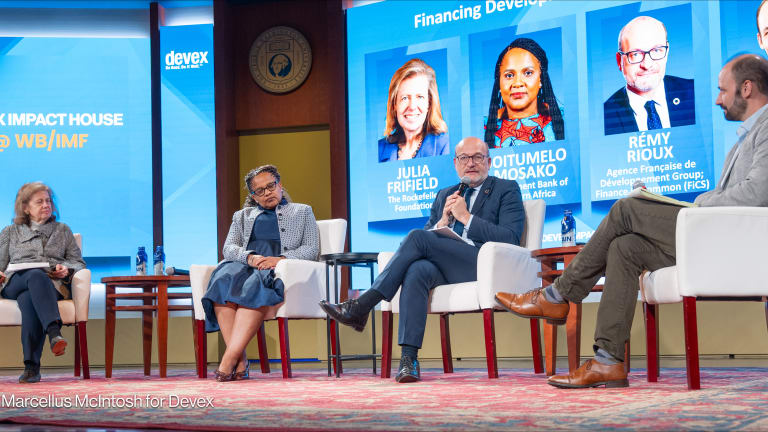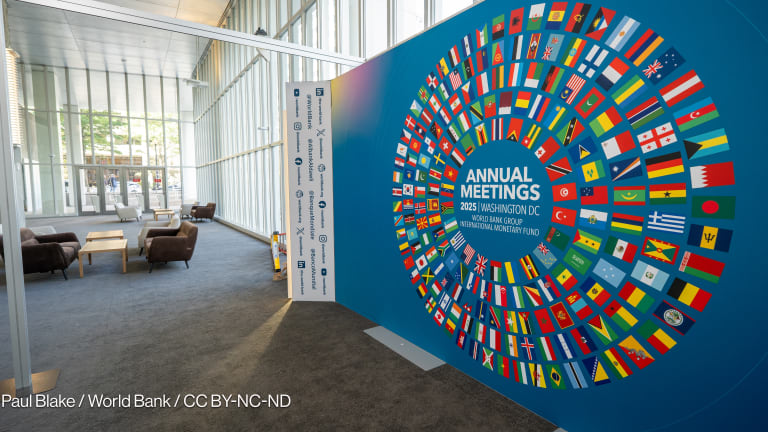Rémy Rioux, CEO of the French Development Agency, or AFD, since 2016, is a seasoned figure in global development financing, with a track record stretching back decades that includes the landmark 2015 Paris climate talks and the third Financing for Development conference in Addis Ababa, Ethiopia.
Now, heading into FfD4 in Sevilla, Spain, this week, he reflected on the evolution — good and not so good — of development financing and the role banks such as AFD play in a rapidly changing and increasingly complex fiscal space.
While some have lauded the fact that a negotiated outcome document was largely done and dusted ahead of FfD4, Rioux sees it as a mixed bag.
This story is forDevex Promembers
Unlock this story now with a 15-day free trial of Devex Pro.
With a Devex Pro subscription you'll get access to deeper analysis and exclusive insights from our reporters and analysts.
Start my free trialRequest a group subscription







